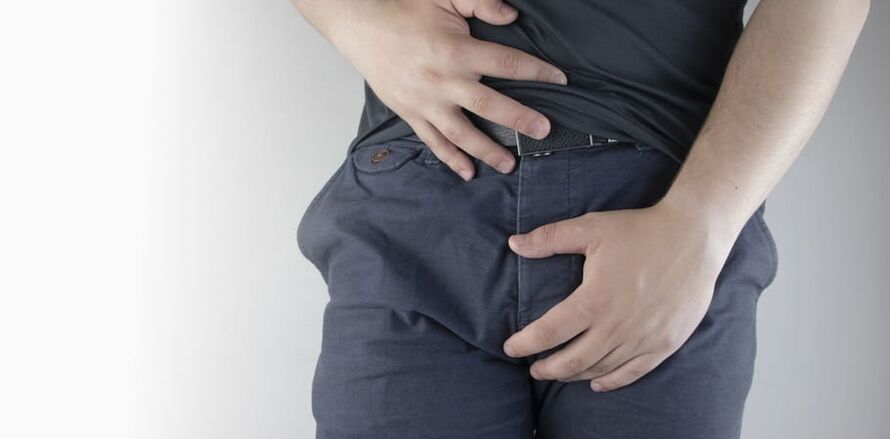For most people, varicose veins only mean lesions of the lower extremities. However, vascular problems can occur in any part of the body, including the intimate parts of men and women. Varicocele (varicocele) in other organs of the labia and vulva, penis, and testis is particularly troublesome.

reason
The main factor in the development of pathology is the weakness of blood vessel walls determined by genes, in which veins lose tension and elasticity. Other causes of varicose veins in the inguinal organs are:
- Malnutrition with frequent constipation;
- Chronic diseases of the genitourinary system;
- Vigorous physical activity is accompanied by tension in the pelvic muscles and the front abdominal wall;
- Due to a sedentary lifestyle, blood circulation in the groin is slow;
- Blood vessel compression and venous blood flow obstruction due to various causes of thrombus, scars, adhesions, tumors;
- Changes in hormone levels during maturity, pregnancy, menopause, and hormone medications;
- Increase the load on the perineal organs of women before and after pregnancy and during childbirth;
- Due to the growth of the uterus, blood stagnation and pressure on the blood vessels of the small pelvis and perineum;
- Trauma and surgery of male and female external genital organs;
- Frequent urinary retention;
- Delay in the ejaculation system;
- Take hot baths, baths, and saunas often.
symptom
In women, varicose veins can affect the labia and other parts of the vulva, and in men, it can affect the penis and scrotum. Depending on the location, the pathology has similar and different symptoms.
Common ones include:
- Early spider veins;
- The expanded inguinal vein protrudes in the perineum, with firm touch, with altered relief, forming grape clusters and nodes at 3-4 degrees of varicose veins;
- Bluish complexion;
- Itching, burning, pain in the development of hyperemia;
- Satiety
- Soreness during close contact, going to the bathroom, physical exhaustion.
Varicose veins of the labia and vulva, as well as:
- The pain radiates to the lower back or buttocks, is chronic in nature, disrupts women’s daily life and leads to worsening of psychological and emotional state: depression, irritability, poor sleep, neurosis.
- A hard and large vascular mass that makes it difficult to sit and move.
Male varicocele (varicocele) is accompanied by:
- The scrotum on one side of the damaged testis is asymmetrical, prolapsed, and swollen;
- Inconvenience, burning and pain while walking, and the slightest physical exertion;
- The quality of intimate life decreases until impotence and infertility.
The failure of the penis is manifested in:
- Even in a calm state, the veins will be severely swollen;
- Painful erections;
- The skin color changes from deep pink to deep red with a bluish tint;
- Swelling of soft tissues;
- Precisely locate bleeding and induration visible under the skin.
What is dangerous
Injury to the groin organs can lead to serious complications and negative consequences: thickening of blood in the blood vessels can lead to sudden bleeding caused by thrombosis, phlebitis, sexual intercourse or strained bowel movements.
Labia and vulva
If left untreated, the disease can progress, leading to complications:
- Varicose phlebitis is a form of thrombophlebitis, which manifests as failure of the superficial blood vessels of the lower extremities. Bring complications to deep veins, main veins, and pulmonary arteries.
- Pelvic thrombosis is the formation of blood clots in the superficial and deep veins, which can be fatal if they are torn off.
Medical practice shows that this pathological bleeding rarely occurs, and the rupture of inflamed veins is rare, but it may occur, especially during childbirth. Therefore, the labial varicose should be treated immediately after the diagnosis.
penis
Varicose veins in the penis and spermatic cord can cause decreased sperm quality and impaired erectile function. The patient’s mental health is also affected: changes in masculinity can affect the emotional state, leading to the development of depression and neurosis, up to impotence.
treat
The basis for the treatment of varicose veins is drug treatment and elimination of the factors that cause pathological development-proper nutrition, exercise, drinking regimen, and weight correction.
These drugs are administered systemically in the form of tablets and capsules, or locally administered in the form of ointments and creams. The following groups are defined: strengthen blood vessel walls, increase venous tone and elasticity, relieve edema and lymphatic congestion, antiplatelet drugs absorb thrombus, reduce inflammation and pain non-steroidal anti-inflammatory drugs, anti-itch antihistamines, burning, etc. .
It is recommended that pregnant women wear compression underwear in the form of tights or tights (with pockets on the abdomen). Men-a special type of underwear that supports the testicles and penis in the correct position.
Among the minimally invasive methods, sclerotherapy is recommended—introducing special substances into the blood vessels, bonding the damaged area, passing the blood through healthy veins, and laser or radiofrequency ablation, which works similarly—to seal the blood vessels in the affected area.
Only after the child is born, if the veins do not return to a healthy state, that is, the cause of the varicose veins is not pregnancy, then surgery is taken.
In the early stages of pathology, alternative therapies can be used for treatment: ointments, medicinal botanical decoctions, compresses and baths based on them. Before using alternative therapies to treat pathologies, you must consult your doctor.












































